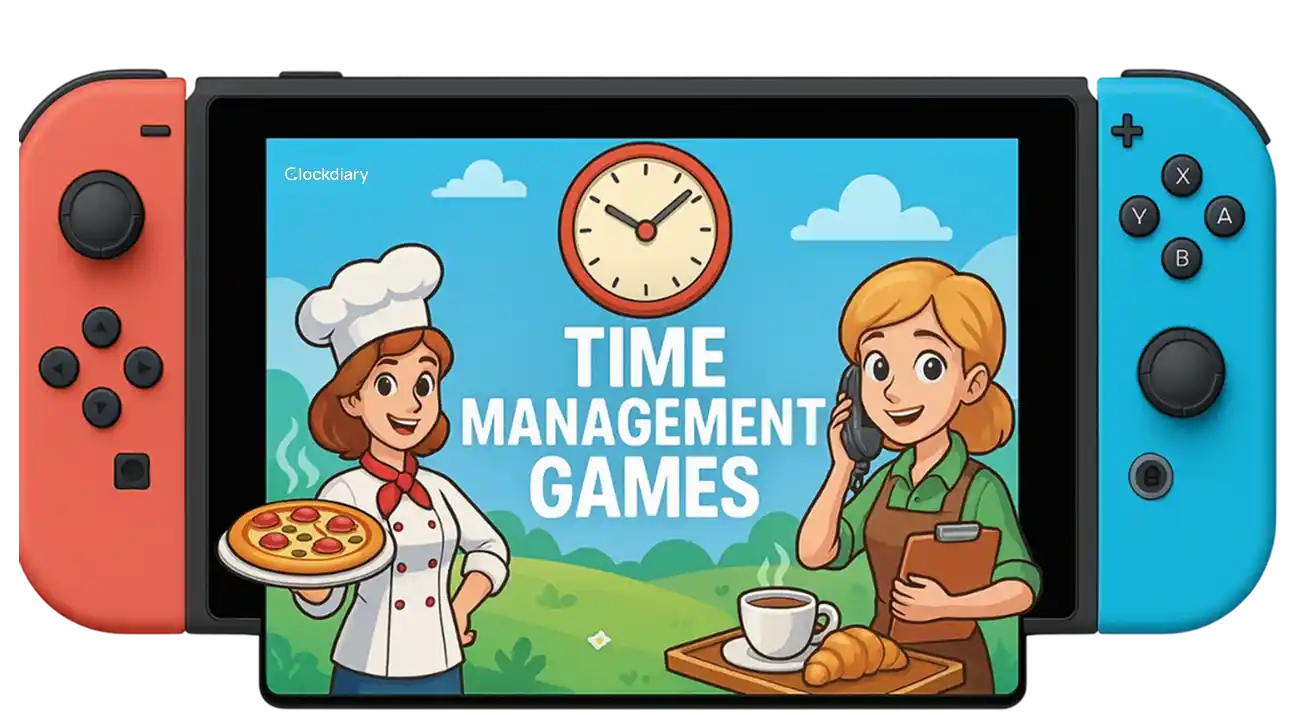

Are you grappling with constant distractions, endless emails, and feeling like your workday has no off switch? You’re not alone. According to Microsoft, employees are interrupted every two minutes, contributing to what they call the “infinite workday,” and nearly half report feeling overwhelmed. Meanwhile, 90% of employees say gamification boosts their productivity at work. What if you could transform that chaos into structured, playful focus? This is where new time management games come into play.
In this blog, you’ll discover 21 engaging time management games and activities, designed for corporate facilitators, educators, and knowledge workers, that harness the power of gamification to tame time, sharpen attention, and reclaim your work-life balance. So, let’s delve right in.
In today’s hybrid and remote-first world, online time management games are becoming essential tools for building productivity and engagement, no matter where your team or classroom is located. These digital games are designed to simulate real-world time challenges in a virtual setting, helping players improve focus, decision-making, and prioritization skills.
From solo brain-training apps to multiplayer team-building platforms, they offer flexible, fun, and interactive ways to practice time management without needing a physical space. Whether you’re a corporate facilitator, educator, or remote worker, these free online time management games provide a modern solution to an age-old challenge: making the most of your time.
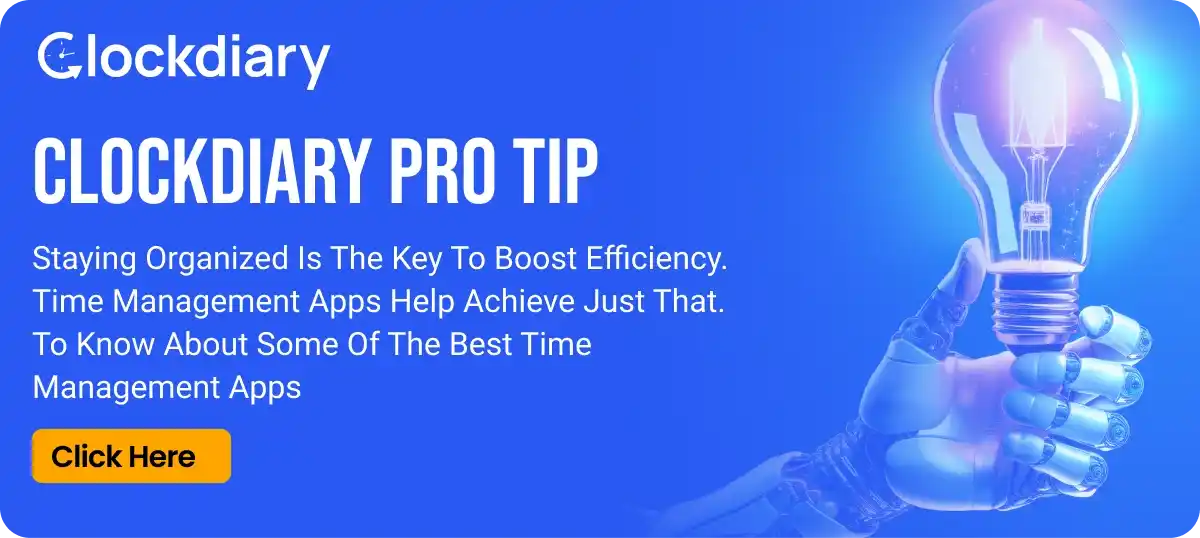

Game Overview
Burger Shop is a vibrant time‑management simulation where players build and run a retro-style burger joint using the mysterious “BurgerTron 2000” contraption. Starting with a basic kitchen, you expand through themed restaurants (e.g., Diner, Beach Hut, Old West Saloon) as you uncover the fun and quirky storyline behind those blueprint.
Burger Shop Gameplay
Burger Shop Rating: On Steam, Burger Shop is one of the most top rated time management games and enjoys a Very Positive rating, with 99% positive reviews from 325 players.
Platforms: Available on Windows, macOS, iOS, Android, and Kindle Fire.
Player Mode: Completely single-player, with progression unlocking more levels and modes for extended replayability.
Burger Shop combines engaging gameplay, narrative fun, and a satisfying progression loop. It’s a powerful example of how gamified time‑management can train focus, prioritization, and workflow under pressure, while keeping it light, fun, and utterly addictive.
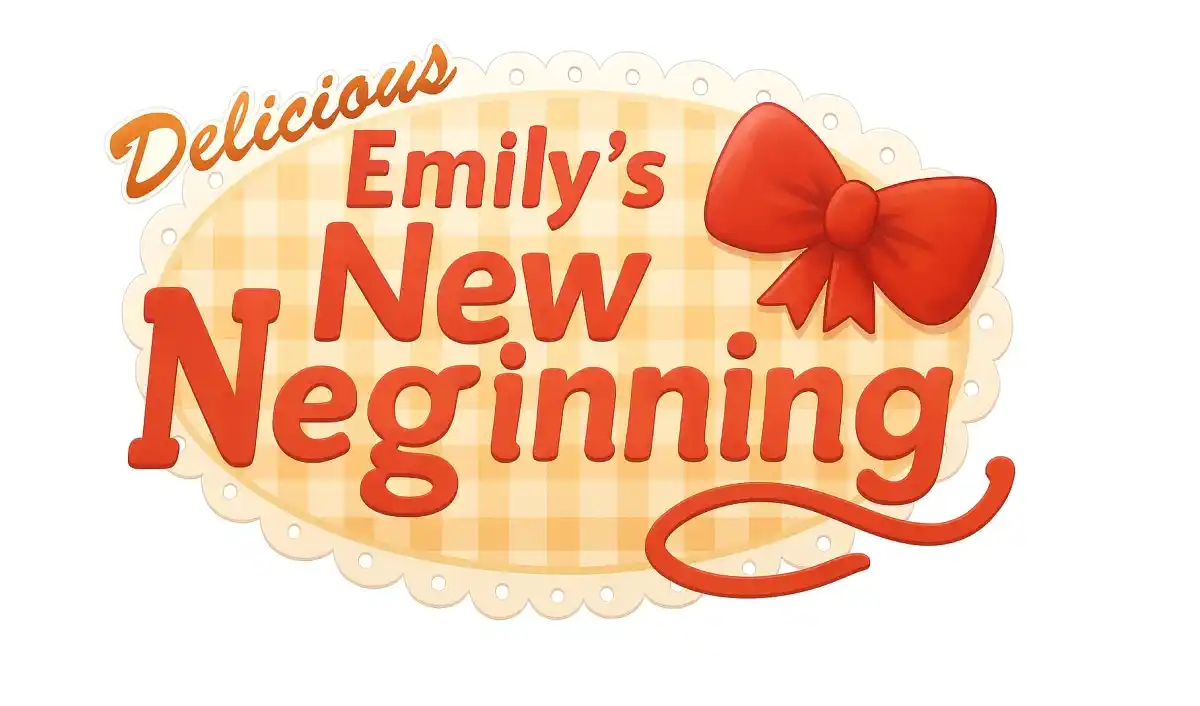
Game Overview
Delicious – Emily’s New Beginning (released November 24, 2016 by GameHouse) picks up the heartwarming saga of Emily as she reopens her restaurant while balancing motherhood.
This is one of the coziest time management games free download that combines relatable narrative with strategic multitasking, perfect for widening soft skills through gameplay.
Delicious – Emily’s New Beginning Gameplay
Rating: On Steam, it holds a “Very Positive” rating—95% positive from over 100 reviews, praised for storytelling, polish, and balance.
The App Store version scores 4.9/5 across 171 ratings, while Google Play users rate it around 3.4/5, a mix of love and criticism over monetization after limited free levels.
Platforms: Available across Windows, macOS, iOS, and Android, with both web and downloadable versions, including a premium “Platinum Edition.”
Player Mode: The game is single-player, making it ideal for individual contributors, educators, and facilitators who enjoy solo immersive gameplay.
Delicious – Emily’s New Beginning is a well-loved example of how narrative-rich, goal-driven time-management mechanics can sharpen focus, multitasking, and emotional resilience, all while engaging players in a meaningful storyline.
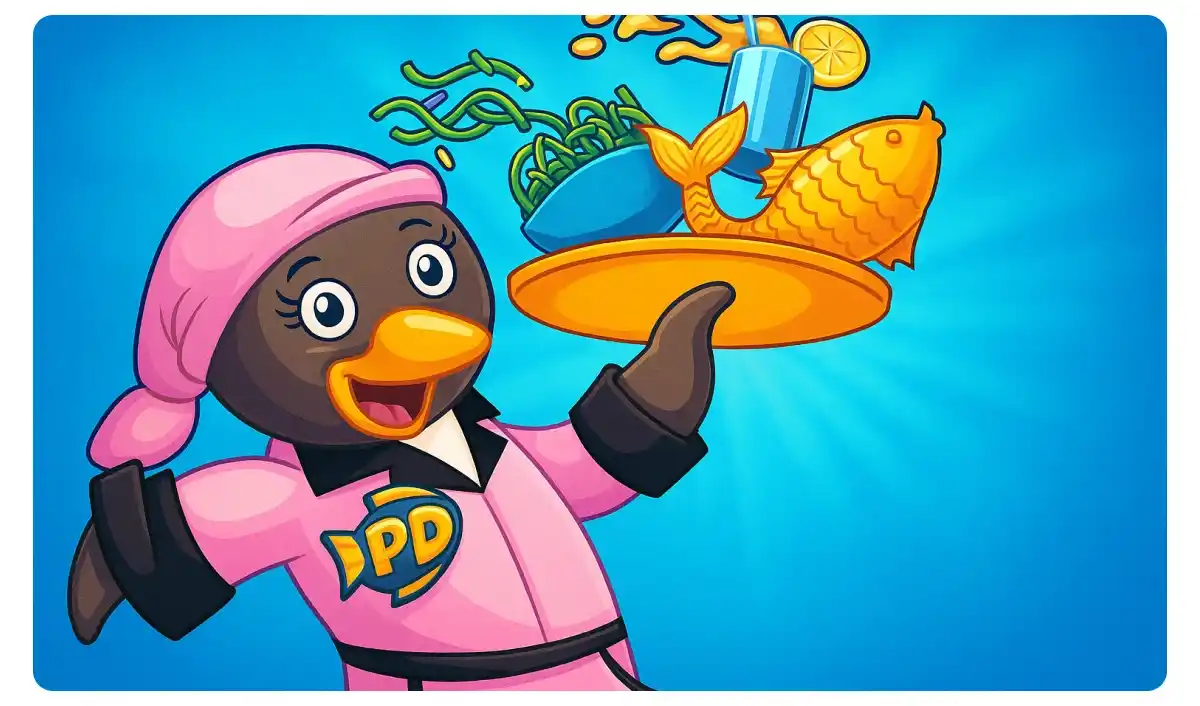
Game Overview
Penguin Diner 2 stars Penny the Penguin as she builds her diner empire across Antarctic locales. This vibrant, cartoonish simulation challenges players to seat guests, take orders, serve meals, and clear tables, all within tight time windows.
It is one of those time management games online that throwback to classic diner games, still gripping players with its fast-paced, strategic flow .
Penguin Diner 2 Gameplay
Rating:
Platforms: Playable on desktop and mobile browsers, and available as a free app for both iOS and Android.
Player Mode: A single-player experience, perfect for solo learners or individual contributors seeking casual yet meaningful productivity practice
This is one of the most engaging time management games for Android that reinforces time management by requiring players to multitask—seat, take orders, serve, upgrade, all within shifting deadlines. Penny’s diner is a playful yet effective way to practice prioritization, resource allocation, and stress management in a low-stakes environment.
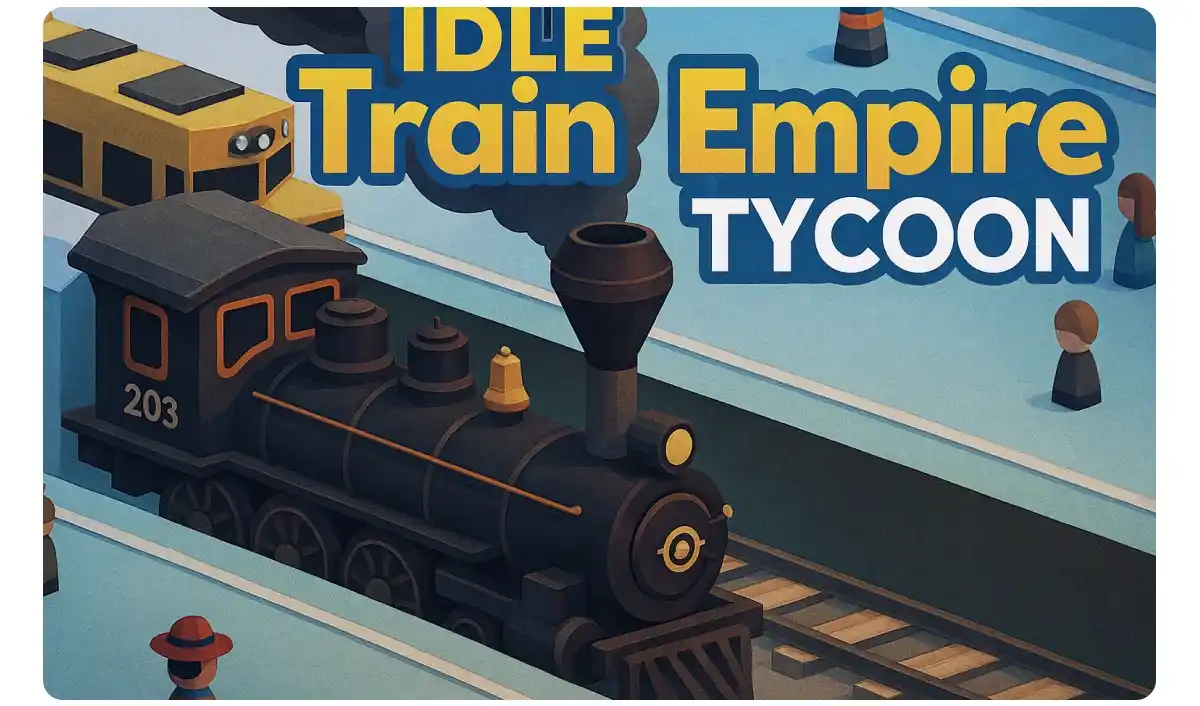
Game Overview
Idle Train Empire Tycoon is a casual yet strategic railway-station management simulation that merges idle gameplay with real-time decisions.
Launched in November 2023 by Hako Games, it challenges players to grow a train station from a single platform into an expansive transport hub packed with amenities and services.
Idle Train Empire Tycoon Gameplay
Rating:
CrazyGames reports an impressive 9.0/10 from 42,789 votes. SilverGames gives a solid 4.2/5 rating, and the Apple App Store shows 4.3/5 from 216 ratings.
Platforms: Accessible via desktop and mobile browsers (HTML5) and available as a standalone Android app on Google Play and the App Store.
Player Mode: A single-player experience with idle mechanics, perfect for individual contributors and remote team members looking for casual yet meaningful gameplay.
Idle Train Empire Tycoon is one of the best relaxed but rewarding time management games Android that trains essential time-management skills—scheduling, resource allocation, and prioritization, wrapped inside a visually engaging, idle simulation.

Game Overview
Theme Hotel, one of the best time management games free online, is a classic browser-based tycoon and time-management simulation where players must build, manage, and transform a fledgling resort into a prestigious five-star destination.
With nostalgic flash visuals and intuitive controls, the game challenges you to balance guest satisfaction, budget constraints, and hotel expansion, all in real time.
Theme Hotel Gameplay
Rating:
Platforms: Playable on HTML5 Flash-emulated browsers via Kongregate, SilverGames, Armor Games, and Y8. Also compatible with mobile browsers on desktop and tablet device.
Player Mode: A single-player experience focusing on strategic planning, multitasking, and gradual mastery, ideal for solo learners and facilitators seeking a relatable, low-pressure productivity metaphor.
Theme Hotel is one of the best time management games online that illustrates real-world time and resource management through a fun, immersive game loop, requiring you to manage construction, staffing, guest needs, and budget, all while aiming for that coveted five-star rating.
Game Overview
Banana Farm is one of the best browser-based time management games for girls where players manage a farm shop selling bananas (and other goods), grow produce, hire staff, upgrade their store, and automate operations, all while balancing speed and resources.
Banana Farm Gameplay
Rating: Rated ~4.3–5.0/5 across platforms like Arcade Spot, GirlsGoGames, and Y8, a solid endorsement of its engaging gameplay.
Platforms: Playable on HTML5 browsers (desktop and mobile) via sites such as GirlsGoGames, GamesGames, Arcade Spot, and Y8, no downloads required. So, if you are looking to play time management games online free no download, this is the one for you.
Player Mode: A single-player casual experience tailored to those seeking quick bursts of productivity practice.
This is one of the best free online time management games no download that teaches key time-management skills: scheduling planting and harvesting, inventory forecasting, workflow planning, staff delegation, and balancing speed with accuracy.
Its casual interface and immediate feedback loops make it ideal for facilitators, wellness advocates, and knowledge workers looking to gamify micro-productivity sessions.
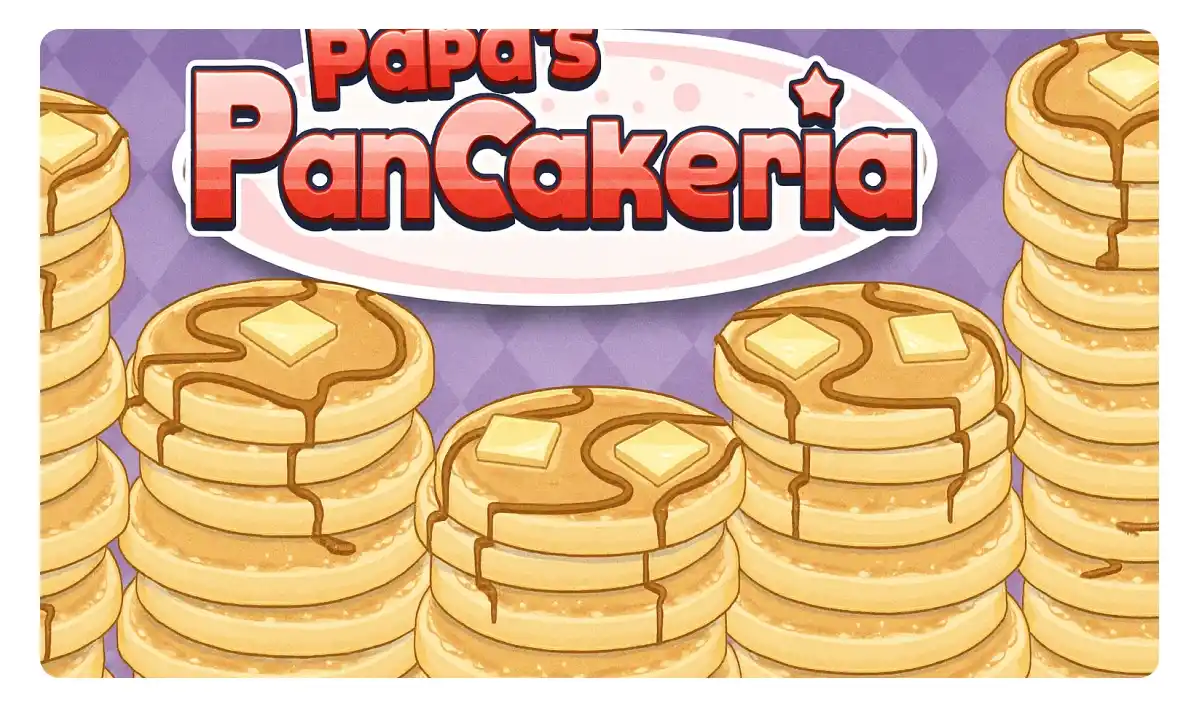
Game Overview
Seeking cozy time management recommendations? Papa’s Pancakeria is a fast-paced, multi-station time management game from Flipline Studios, released in 2012 as part of the popular Papa Louie series. In it, players manage a pancake-focused breakfast restaurant, handling orders, cooking, topping, and serving, all under tight time constraints.
The HD and mobile versions enhance gameplay with custom characters, pets, and holiday-themed content.
Papa’s Pancakeria Gameplay
Rating:
Platforms: Playable on HTML5 browsers (Coolmath, CrazyGames, Kongregate), as well as iOS, Android, Amazon Fire, and tablet HD apps.
Player Mode: A focused single-player experience that tests multitasking, prioritization, and workflow timing in quick-session bursts.
Papa’s Pancakeria is a master class in parallel task juggling. Players must manage multiple stations simultaneously, optimize workflows, upgrade operations, and respond dynamically to order flow, thus mirroring real-world productivity demands.
Perfect for facilitators and wellness advocates, it gamifies key lessons in sequence planning, customer satisfaction focus, and resilience under pressure.
Looking to sharpen your productivity skills while gaming on the go? The Nintendo Switch offers a surprising variety of time management games that blend strategic planning with fast-paced decision-making.
Whether you’re managing a busy kitchen, building a business empire, or organizing adorable chaos, these free time management games provide a fun, hands-on way to practice prioritization, multitasking, and resource control. Perfect for professionals, educators, and gamers alike, these titles turn downtime into development time.
In this section, we’ll explore the top Nintendo Switch time management games that can help boost your brainpower, one satisfying level at a time.
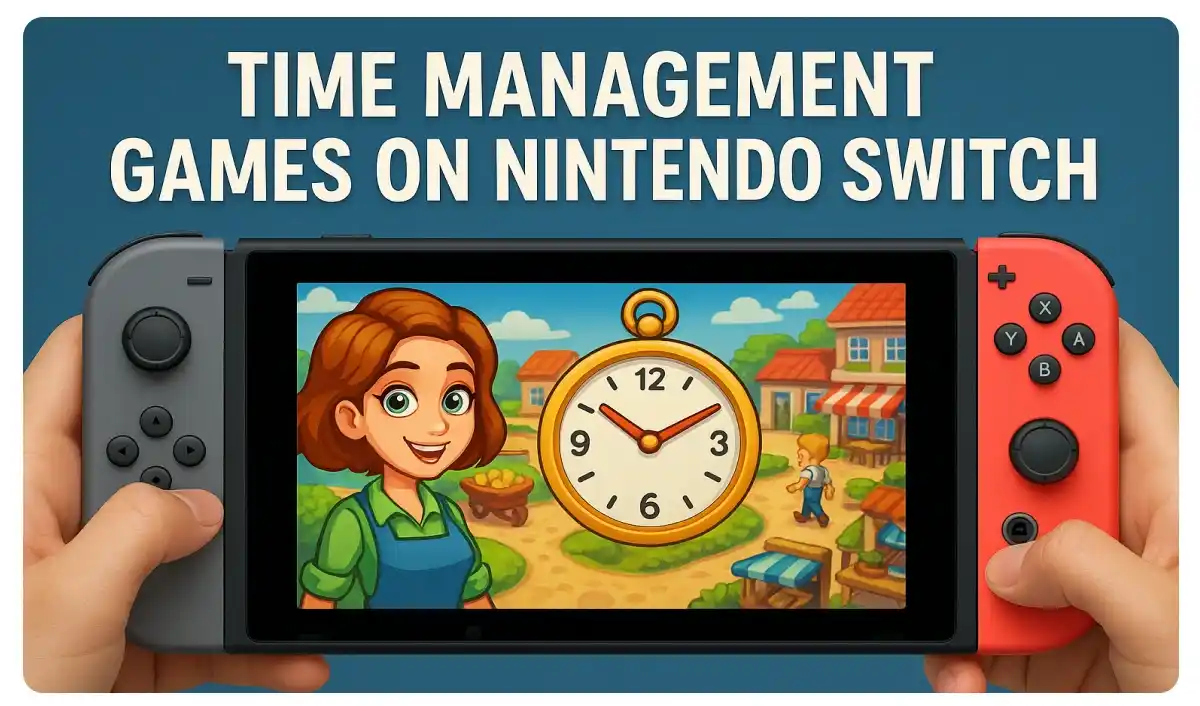
Game Overview
Factorio, developed by Wube Software, is a construction and management simulation game where players crash-land on an alien planet and work to build automated factories, optimize logistics, and launch a rocket to escape.
The Nintendo Switch version, released on October 28, 2022, offers nearly the full PC experience, with the exception of mod support. If you are searching for free time management games for PC full version, Factorio might just be the thing for you.
Factorio Gameplay
Rating: Critically praised with an OpenCritic score of 92%, including 8/10 from Nintendo Life, IGN, and God is a Geek, and 7/10 from Nintendo World Report.
Nintendo Life commends the port: “everything… does its job beautifully” despite minor control challenges.
Platforms:
Player Mode: Primarily single-player, with optional online co-op for collaborative factory-building sessions.
Factorio’s deep layering demands players divide attention across immediate tasks and long-term planning, thus mirroring real workplace project management. The Switch edition adds portability, letting professionals explore complex systems and productivity principles anywhere.
While the controls take some adaptation, the strategic insights and immersive simulation make it one of the best fun time management games for experiential learning.
Game Overview
Stardew Valley (Switch release: October 5, 2017) is a cozy, open‑ended farming simulation developed by ConcernedApe. Players inherit a worn‑down farm, then cultivate crops, raise livestock, mine, fish, and build relationships within the community.
It blends strategic task management with relaxing immersion, making it one of the best time management online games for both productivity training and unwinding.
Stardew Valley Gameplay
Rating: Garnering an impressive 92% score on OpenCritic, Stardew Valley is praised for its charming gameplay and deep content.
Switch reviews highlight its seamless controls and portability, calling it “at home on the Switch.”
Platforms: Exclusive to Nintendo Switch for this section, Stardew Valley is also available on PC, macOS, Linux, PlayStation, Xbox, iOS, and Android.
Player Mode: Offers both solo and cooperative multiplayer, enabling solo creators or small teams to farm, explore, and strategize together. Thus, it can be safely said that it is one of the best time management games for employees.
Game Overview
Two Point Hospital is a humorous, strategy-driven hospital management simulator and spiritual successor to Theme Hospital. Released for Nintendo Switch on February 25, 2020, the game empowers players to design, staff, and manage whimsical hospitals filled with cartoonish ailments.
The recently launched Jumbo Edition includes DLC like Bigfoot, Pebberley Island, Close Encounters, and Off the Grid.
Two Point Hospital Gameplay
Two Point Hospital Rating
The Switch version received high praise. Nintendo Life scored it 9/10, highlighting its addictive gameplay and seamless UI.
Critics applaud its smooth performance and portability, citing minor frame-rate dips and control quirks.
Platforms:
Player Mode: Primarily single-player, with optional multiplayer modes on other platforms. The Switch experience focuses only on solo play, thus offering a portable way to sharpen strategy and multitasking skills.
Two Point Hospital is a masterclass in handling tasks under pressure. Prioritizing diagnoses, managing staff, scheduling facility expansion, and meeting financial goals, all within tight timeframes.
The consistent objectives, pause-and-play convenience, and layered complexity make it an educational yet fun simulation for productivity- and gamification-focused users. If you are looking for best time management games for students, things just can’t get better than this.
Game Overview
Overcooked 2 is one of the most fast-paced, cooperative cooking games where teams of chefs scramble to prepare and serve dishes in absurd, ever-changing kitchens. Available on Switch since August 7, 2018, it builds on the original with new recipes, dynamic kitchen layouts, and online multiplayer, perfect for boosting real-time communication and prioritization under pressure.
Overcooked 2 Gameplay
Rating:
Platforms: Available on Nintendo Switch (handheld and docked), as well as PC, PlayStation, Xbox, Amazon Luna, and part of the Overcooked: All You Can Eat bundle on newer consoles.
Player Mode: Supports 1–4 players, both locally and online. Best experienced in co-op mode, though single-player is fully supported.
Overcooked 2 , one of the best time management games PC, is a masterclass in multitasking, task prioritization, and adaptive teamwork. Players must constantly juggle shifting kitchen zones and limited time. This builds real-world skills like quick decision-making, communication, and efficiency under pressure, which are nothing but hallmarks of strong productivity.
Game Overview
Game Dev Tycoon is a business simulation that lets players step into the shoes of a game developer starting from a humble garage in the early 1980s, working their way to running a major studio.
It launched on Nintendo Switch on October 8, 2020, with a revamped interface optimized for touch and Joy-Con controls, and cross-save functionality with PC and mobile versions.
Game Dev Tycoon Gameplay
Rating:
On Switch, Game Dev Tycoon earned an average score of 8.05/10 from critics, with Pure Nintendo giving it a 10/10 and others ranging from 6 to 8.
Player reviews are equally positive—4.7/5 across 21k ratings.
Platforms: Available on Nintendo Switch, with versions also on PC, macOS, Linux, iOS, and Android.
Player Mode: Strictly a single-player experience, ideal for focused, self-paced simulation sessions.
Game Dev Tycoon is a real-world mirror of strategic planning. Players juggle time, budgets, talent, and long-term projects under constraints and market pressure. The Switch edition adds portability and intuitive controls, making it one of the best time management games PC for experiential learning, even during breaks or travel.
Game Overview
YouTubers Life 2 is a life‑simulation time management game where players step into the shoes of an aspiring content creator in the vibrant open-world of NewTube City.
Launched on Switch on October 19, 2021, it simulates the daily grind of recording, editing, and uploading videos, while chasing subscriber counts, brand deals, and collaborations with real-life stars like PewDiePie and Rubius.
Youtubers Life 2 Gameplay
Rating: The Switch version holds mixed reviews, with a Metacritic score of 63/100 and average around 7.33/10 from niche Switch sites.
Critics praise its charm and depth, but note repetitive mechanics and technical glitches. User feedback echoes similar sentiments.
Platforms: Available on Nintendo Switch, also playable on PC, PS4, Xbox One, Xbox Series, iOS, and Android.
YouTubers Life 2 simulates real-world productivity by forcing players to juggle content creation, social tasks, gear upgrades, and social energy. all within a daily cycle. It emphasizes scheduling, resource allocation, and prioritizing tasks under time constraints, making it one of the best time management games switch for knowledge workers, corporate facilitators, and wellness advocates who want a gamified model of work-life balance.
Game Overview
Julie’s Sweets is a story-driven, arcade-style time management game where players help Julie juggle running her family’s bakery, enrolling in cooking school, and navigating young adult life dilemmas.
Launched December 6, 2018, this Switch eShop title offers 60 story levels and 18 bonus challenges, set across varied cafés including patisseries and donut shops. If you are looking for some best games on time management for students, this is the one for you.
Julie’s Sweets Gameplay
Rating: Nintendo Life scored it 5/10, calling gameplay “basic but solid,” yet criticized its visuals and replay value.
Switch Player noted the experience is “moreish,” though controls hinder fluid action.
eShopperReviews rated it a C, citing poor gamepad support and a hefty price tag.
Platforms: Available on Nintendo Switch (eShop), with versions also on PC, iOS, and Android.
Player Mode: A single-player experience that leans heavily on touchscreen interaction, less enjoyable with a controller.
Though its mechanics are classic and repetitive, Julie’s Sweets , one of the best time management games Android still challenges players to prioritize, multitask, and act swiftly under pressure.
It highlights how productivity games can train attention to workflow sequences and time-bound goal completion, even if the delivery feels a little uneven. For facilitators and professionals, it exemplifies basic time-management simulation wrapped in a casual narrative.
Looking to sharpen your productivity skills without needing an internet connection? Offline time management games offer the perfect way to stay engaged, focused, and mentally agile, anytime, anywhere. These games simulate real-world challenges like multitasking, prioritizing, and resource allocation, helping players build essential habits for work and life.
Whether you’re commuting, traveling, or simply unplugging from distractions, offline games bring purposeful entertainment to your fingertips. In this section, we’ll explore some of the best offline time management games that don’t require Wi-Fi but still deliver powerful lessons in planning, decision-making, and productivity, all through fun, interactive gameplay.

Ace of Spades is one the simplest yet powerful offline time management activities designed to highlight the value of organization and structured systems in time management. Ideal for small groups, this exercise contrasts efficiency when working methodically versus chaotically.
How Is It Played:
What You’ll Learn:
Great for:
Ace of Spades is one of the most memorable, hands-on group exercises for adults looking to understand how small investments in planning and structure can yield big productivity gains. No internet needed!
“How Long Is a Minute?” is a simple yet insightful offline activity that tests participants’ internal time perception without clocks or technology. Perfect for fostering self-awareness around time estimation, this free time management game reveals how our subjective sense of a minute can vary wildly, and how misjudging time affects productivity.
How Is It Played?
What You’ll Learn?
Great for
A deceptively simple one minute challenge for middle schoolers, “How Long Is A Minute?” drives home that estimating time isn’t intuitive. Rather, it’s learned. This awareness empowers facilitators, educators, and professionals to refine planning, set realistic deadlines, and build focused routines, all while engaging participants in a light-hearted yet revealing activity.

The Big Picture Challenge is one of the most interactive offline time management games for kids that illustrates the importance of clarity and shared vision in time management. Participants discover how a lack of direction slows progress, and how big-picture alignment accelerates results.
How Is It Played
What You’ll Learn
Great For
The Big Picture Challenge is a hands‑on metaphor for productivity: start strong, stumble without vision, accelerate with clarity. The reveal moment is not just satisfying. It’s a powerful reminder that knowing the destination is half the journey.
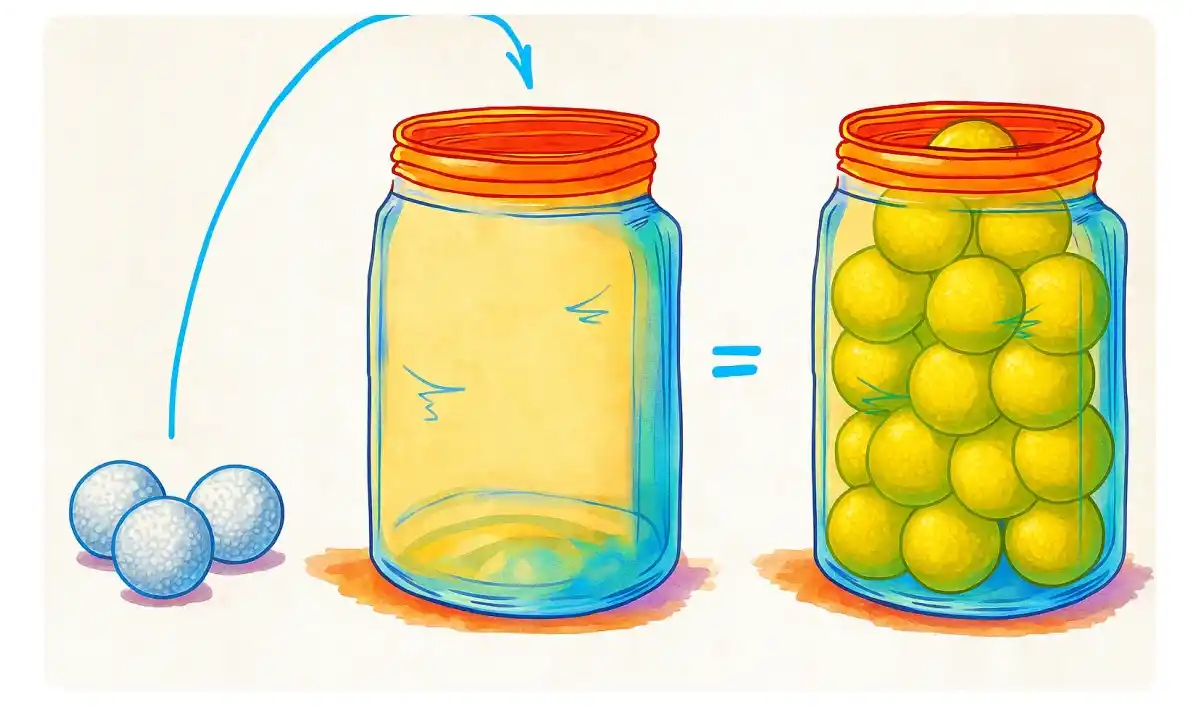
The Mayo Jar is one of the most classic, hands-on time management games for college students that powerfully illustrates how you should prioritize the important things before the small stuff.
Based on a famous classroom parable, it uses tangible items—golf balls, pebbles, sand to represent tasks of different value, making a memorable lesson in planning and priorities.
How Is It Played
What You’ll Learn
Great for:
The Mayo Jar is a simple yet transformative time management activity. It clearly demonstrates that effective time management isn’t about squeezing more in. Rather, it’s about choosing what to put in first.
Ideal for facilitators, educators, and teams seeking a concrete, interactive way to teach planning and prioritization.
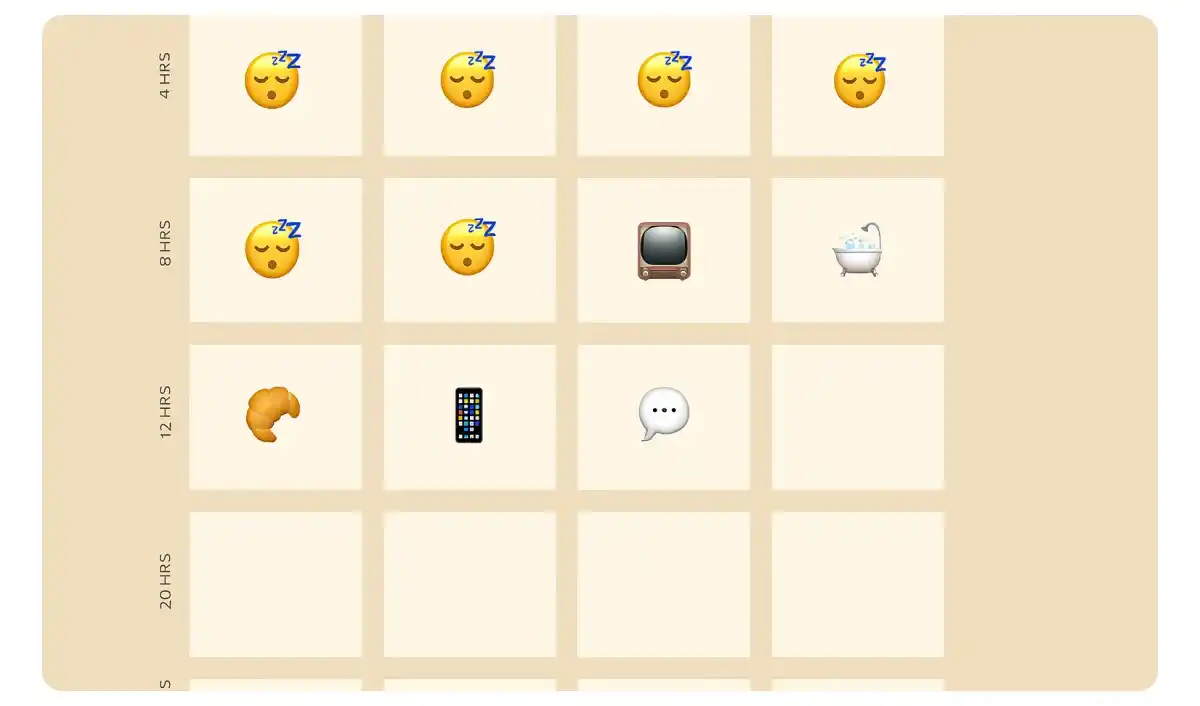
Time Squared is a paper-based workshop activity that visually reveals how individuals spend their hours and where productivity gaps lie. It’s an eye-opening exercise that transforms abstract routines into tangible data, encouraging smarter time-blocking and prioritized scheduling.
How is It Played
What You’ll Learn
Great for
Time Squared turns time management into a visual and collaborative journey, making abstract patterns visible and inspiring concrete, practical change. Thus, it goes without saying that this is one of the best time management games for corporate employees.

“What I Did Yesterday” is a reflection-focused activity designed to bridge the gap between daily actions and strategic objectives. It uncovers hidden inefficiencies and realigns work with performance goals through simple yet insightful exercises.
How Is It Played
What You’ll Learn
Great for
“What I Did Yesterday” is a powerful yet low-tech tool: a lightbulb moment that helps participants rethink routines, correct misalignment, and take ownership of productivity choices. It’s quick, relatable, and impactful, making it one of the best time management games free for facilitators, educators, and solo professionals aiming to boost efficiency through introspection.
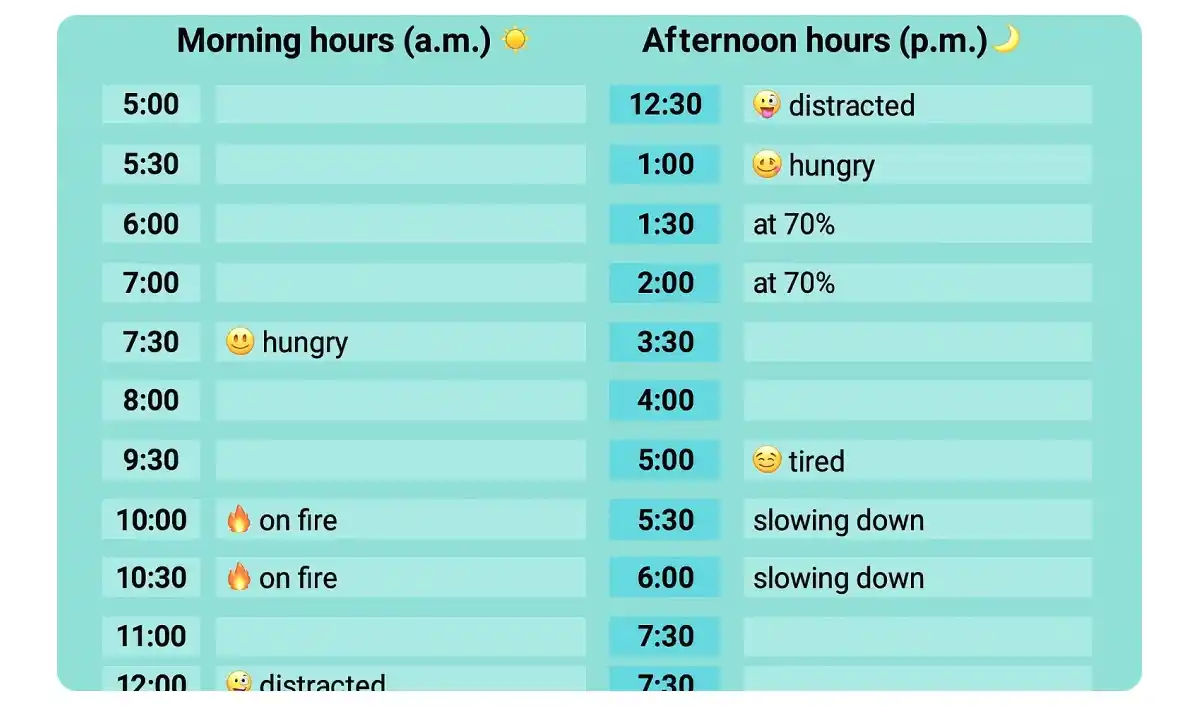
The Circadian Rhythm game helps participants visualize their natural energy cycles to better align work with peak focus times. By mapping personal rhythms—“on fire,” “distracted,” or “slowing down”, learners discover how to schedule tasks effectively, enhancing productivity and well-being.
How Is It Played
What You’ll Learn
Great for:
By understanding and leveraging natural energy flows, participants gain control over their schedules, doing the right work at the right time. It’s a low-tech yet transformative time management game for adults that help in aligning work with well-being.
Time management games are interactive activities, often playful or competitive, that help individuals practice prioritization, focus, planning, and efficient task execution. Unlike traditional productivity tools, these games blend strategy and fun to simulate real-world time pressures, making them ideal for both corporate and educational settings.
From team-based challenges to solo problem-solving exercises, they encourage critical thinking, collaboration, and fast decision-making. The goal? Build habits that translate into better performance at work or school.
Whether you’re leading a workshop, managing a remote team, wondering how to teach time management, or simply trying to improve personal productivity, free time management games offer a fresh, engaging approach to mastering time.
Time management games aren’t just for fun. They’re powerful tools for building essential life and workplace skills. Here’s why integrating them into your routine or training session is a smart move:
Games time management free put players under time constraints, helping them become more conscious of how long tasks actually take. This awareness sharpens scheduling skills and improves personal accountability.
Fast-paced challenges force players to think on their feet. They learn to assess priorities, make trade-offs, and choose wisely under pressure, mirroring real-world scenarios.
Games create a low-stakes environment to practice time-bound tasks. As individuals gain confidence in managing deadlines, they experience less anxiety when facing actual work demands.
Many good time management games involve group play, encouraging communication, delegation, and mutual support. This builds trust and improves coordination in teams, skills vital for team building and corporate success.
The cognitive and behavioral improvements from these games don’t stay on the board. Players often apply better planning, goal-setting, and time-blocking strategies in their day-to-day responsibilities.
Let’s face it, learning about time management through lectures can be dull. Fun time management games inject energy, laughter, and movement into the process, boosting engagement and knowledge retention.
Time is a resource, just like money or manpower. These games teach players to allocate limited time wisely, simulating project management or workflow planning situations.
By gamifying mundane tasks, these time management activities increase motivation and reduce avoidance behaviors. Completing levels or beating the clock provides instant gratification, nudging people to take action.
Ultimately, these games help individuals work smarter. By training the brain to focus, prioritize, and act efficiently, they lay the groundwork for long-term productivity gains, both individually and across teams. This, in turn, increases productivity in the workplace.
Thus, we can say that these time management games isn’t just training. It’s a strategic shift toward a more resilient, productive workplace culture.
Running time management games effectively takes more than just enthusiasm. It requires structure, intention, and adaptability. Whether you’re leading a corporate workshop, educational session, or wellness retreat, this guide ensures your facilitation delivers real value.
By preparing thoroughly, facilitating intentionally, and debriefing meaningfully, you turn time management games into transformational learning experiences.
Clockdiary is a powerful yet user-friendly AI-powered time-tracking app that helps individuals and teams monitor work patterns, streamline processes, and maximize productivity.
Key features include:
These features empower users and teams to:
By integrating Clockdiary time tracking app into your workflow, time becomes a measurable, optimizable resource. You’ll move from intuition-based scheduling to metrics-driven productivity strategies, empowering both individual contributors and teams to operate with clarity, consistency, and confidence.
So, what are you waiting for? Integrate this technological wizardry into your workflow and make time management seem just like a walk in the park.
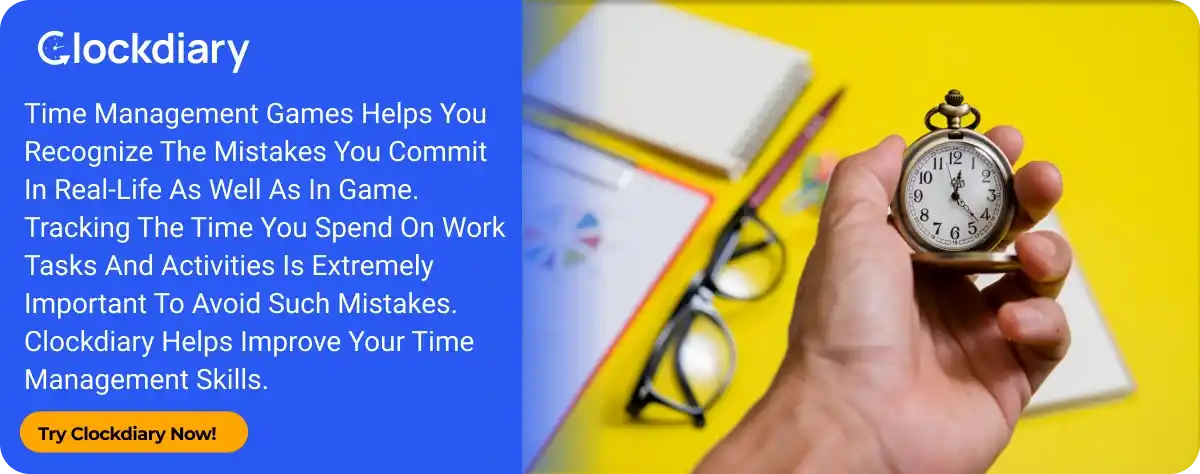
Frequently Asked Questions About Time Management Games
Time management is required to make the most of limited hours by organizing, prioritizing, and executing tasks effectively. It helps individuals achieve goals faster, reduce procrastination, and maintain control over their personal and professional responsibilities.
Time management is crucial in the workplace because it helps employees prioritize tasks, meet deadlines, and reduce stress, leading to higher efficiency and productivity. It also fosters accountability, better collaboration, and a healthier work-life balance, ultimately contributing to overall organizational success.
Time management is important in games because it challenges players to make quick decisions, prioritize tasks, and allocate resources efficiently under pressure. These skills mirror real-life productivity strategies, making gameplay both engaging and educational.
Games that teach time management often involve multitasking, prioritization, and working under pressure, such as Overcooked 2, Papa’s Pancakeria, Factorio, and The Mayo Jar. These games simulate real-world decision-making by challenging players to allocate time efficiently, adapt to changing demands, and complete tasks within deadlines.
The 5 P’s of time management are Prioritize, Plan, Prepare, Perform, and Pause. This framework helps individuals focus on what matters most, structure their tasks effectively, execute with intention, and build in recovery time to maintain long-term productivity.
The 60 Seconds Game (How Long is A Minute) for time management challenges participants to estimate exactly one minute without using any timekeeping device. It reveals how differently individuals perceive time, emphasizing the importance of time awareness and mindful pacing in daily tasks.
The 7-8-9 Rule for time management refers to aiming for 7 to 8 hours of sleep and starting your day by planning 9 key tasks or goals. It promotes a balanced routine by combining rest, structured planning, and focused execution to boost daily productivity.